Navigating Qatar’s Tax Landscape: A Guide for Small Businesses

Understanding Qatar’s Tax System
Qatar’s tax landscape is evolving, and small businesses must stay informed to ensure compliance and financial efficiency. From corporate tax to VAT regulations, understanding Qatar’s tax landscape can help businesses minimize liabilities and avoid penalties. This guide explores the key aspects of Qatar’s tax landscape for small businesses and provides expert insights on compliance and tax optimization.
At Sijilat Financial Consultant, we provide expert tax services in Qatar, including tax registration, compliance, advisory, and filing to ensure your business meets all legal requirements while maximizing tax efficiency.
1. Key Tax Regulations for Small Businesses in Qatar
1.1 Corporate Income Tax (CIT)
Corporate Income Tax applies to foreign-owned businesses operating in Qatar. According to Qatar’s Income Tax Law No. 24 of 2018, companies with foreign ownership must pay 10% corporate tax on their net profit. However, businesses fully owned by Qatari nationals or GCC citizens are exempt from this tax.
✅ Tax Tip: If your business has foreign shareholders, consider structuring your ownership strategically to reduce tax liabilities.
1.2 Withholding Tax (WHT)
Withholding tax applies when a company makes payments to non-resident entities. The applicable rates are:
- 5% on royalties, interest, commissions, and service fees paid to non-residents.
- 0% on dividends (Qatar does not impose dividend taxes).
✅ Tax Tip: Businesses engaging in international transactions must ensure compliance with WHT regulations to avoid penalties.
1.3 Value-Added Tax (VAT) in Qatar
Although Qatar has not yet implemented VAT, it is expected to introduce a 5% VAT in line with the Gulf Cooperation Council (GCC) VAT Framework. Businesses should start preparing for VAT compliance by:
- Understanding VAT’s impact on pricing and revenue.
- Setting up an accounting system for VAT reporting.
- Training staff on VAT requirements.
For VAT-related updates, check the General Tax Authority (GTA) website.
1.4 Excise Tax
Qatar applies excise tax on certain goods to promote health and environmental sustainability. The excise tax rates are:
- 100% on tobacco products and energy drinks.
- 50% on sugary drinks.
- 100% on special-purpose goods like alcohol.
✅ Tax Tip: If your business deals with excisable goods, ensure proper tax registration and compliance to avoid legal issues.
1.5 Personal Income Tax
Qatar does not impose personal income tax on salaries, wages, or employment income. This makes it an attractive destination for expatriates and business owners.
✅ Tax Tip: Since there’s no personal income tax, businesses can offer competitive salary packages to attract top talent.
2. Tax Registration & Compliance for Small Businesses
2.1 How to Register for Tax in Qatar
All businesses in Qatar must register with the General Tax Authority (GTA) to comply with tax regulations. The steps include:
- Company Formation: Register your business with the Ministry of Commerce and Industry (MOCI).
- Tax Identification Number (TIN): Obtain a TIN from the GTA.
- Filing Requirements: Submit annual tax returns, financial statements, and declarations.
For assistance with tax registration, visit Sijilat Financial Consultant for expert support.
2.2 Filing Tax Returns in Qatar
Businesses must file their tax returns annually. The filing process includes:
- Preparing audited financial statements.
- Submitting tax returns via the Dhareeba tax portal.
- Paying corporate income tax before the deadline to avoid fines.
✅ Tax Tip: Small businesses should maintain accurate bookkeeping to streamline tax filing. Learn more about our bookkeeping services to stay compliant.
2.3 Tax Compliance & Penalties
Failure to comply with Qatar’s tax laws can result in severe penalties, including:
- QAR 500 per day for late filing (up to QAR 180,000).
- 2% monthly interest on unpaid taxes.
- Possible business suspension for non-compliance.
To avoid penalties, small businesses should seek professional tax advisory services from Sijilat Financial Consultant.
3. How Small Businesses Can Optimize Their Taxes
✅ Leverage Tax Deductions
Small businesses can reduce their taxable income by claiming deductions for:
- Business expenses (rent, salaries, utilities).
- Depreciation on assets.
- Research and development (R&D) expenses.
✅ Use Tax Planning Strategies
Proper tax planning ensures compliance while minimizing tax liabilities. Businesses should:
- Structure ownership effectively.
- Utilize offshore business strategies where applicable.
- Plan transactions to optimize tax impact.
✅ Consult a Tax Expert
Hiring a professional tax consultant like Sijilat Financial Consultant helps businesses:
- Stay compliant with Qatar’s tax laws.
- Reduce tax burdens through efficient financial structuring.
- Handle tax audits and legal matters effectively.
FAQs: Qatar’s Tax Landscape
1. Do small businesses in Qatar have to pay corporate tax?
If the business has foreign ownership, yes, corporate tax applies at a 10% flat rate. Fully Qatari-owned businesses are exempt.
2. How can I register my business for tax in Qatar?
You must register with the General Tax Authority (GTA) and obtain a Tax Identification Number (TIN). Our experts at Sijilat Financial Consultant can assist you.
3. What happens if I don’t file my taxes on time?
Late tax filing incurs penalties of up to QAR 180,000 and 2% monthly interest on unpaid taxes.
4. Is VAT applicable in Qatar?
Currently, no, but VAT is expected in the future. Businesses should prepare in advance.
5. How can I optimize my tax payments?
Leverage deductions, tax planning strategies, and consult experts like Sijilat Financial Consultant for better financial management.

